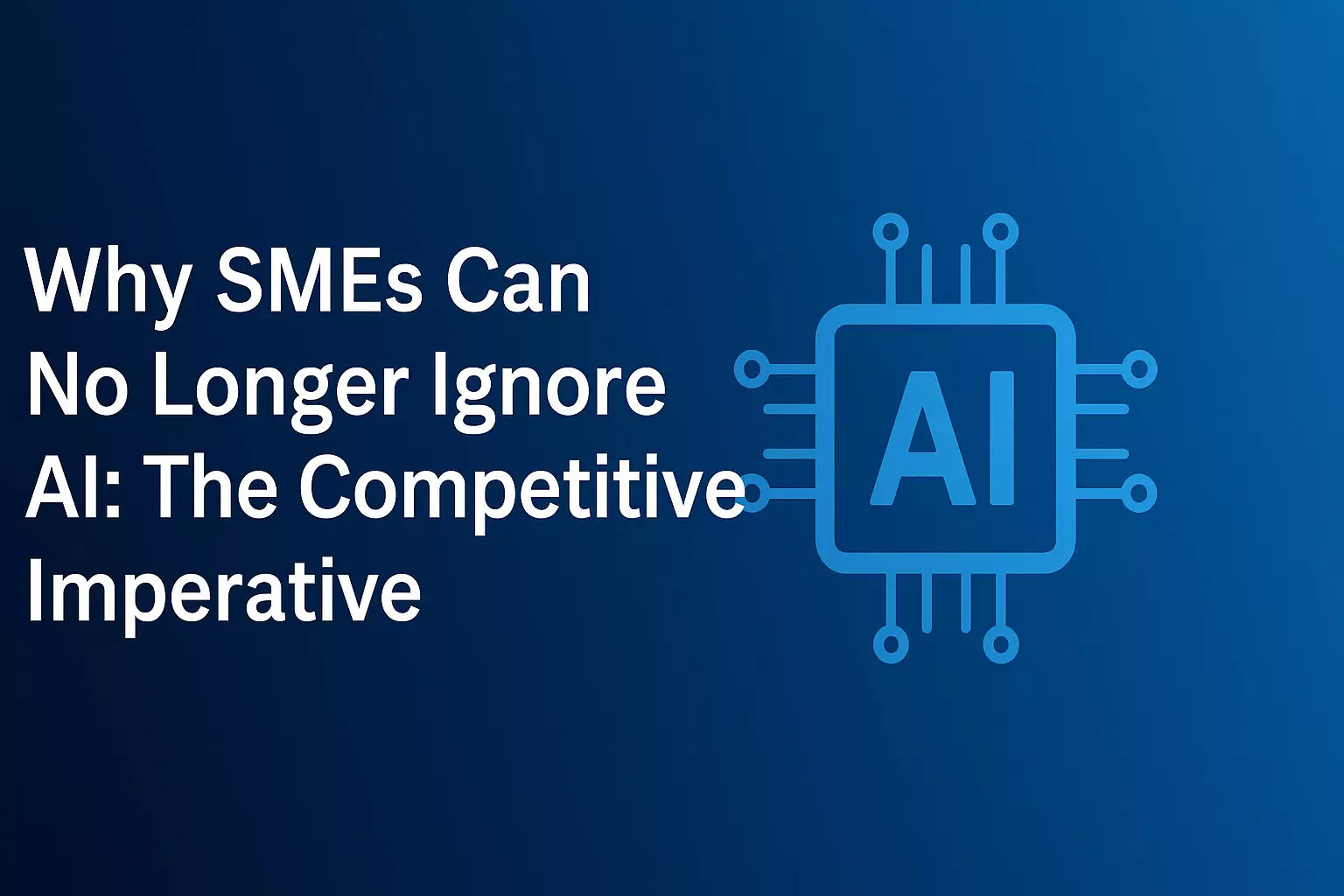Why Philadelphia SMEs Can No Longer Ignore AI: The Competitive Imperative in 2025
image for illustrative purpose

Why Philadelphia SMEs Can No Longer Ignore AI: The Competitive Imperative in 2025
Small and mid‑sized businesses have long been the backbone of Philadelphia’s economy. From neighbourhood shops to growing tech start‑ups, these ventures give the city its entrepreneurial spark. Yet, as we move through 2025, one thing is becoming clear: artificial intelligence is no longer a “big‑company luxury.” It’s a necessity for staying competitive.
The firms gaining ground around Philadelphia aren’t always the largest or the most established. The real winners are those tapping into data, automation and AI‑driven processes to stretch limited resources. Customer expectations are rising, digital rivals appear daily, and AI is quietly becoming the deciding factor between businesses that expand and those that get stuck.
Why AI Is Becoming Non‑Negotiable for SMEs
For years, smaller companies assumed that artificial intelligence was too complicated, too expensive or too technical for their teams. That myth is vanishing. Today’s AI tools are designed for accessibility and affordability, with features built specifically for small and mid‑sized operations.
Here’s why AI is moving from a “nice to have” to a “must have.”
1. AI cuts costs and boosts efficiency
Labour shortages and rising operational expenses continue to put pressure on small businesses, especially in high‑overhead cities like Philadelphia. AI allows companies to operate more efficiently without sacrificing quality. Automated data entry can trim hours of administrative work. Predictive analytics help prevent inventory waste. AI‑powered customer support reduces repetitive service tickets and frees up staff for meaningful interactions. When you add up those time savings, they translate into lower costs and healthier margins—giving business owners room to invest in growth.
2. AI helps Philly businesses understand their customers
Every click, search and purchase generates data, but most small businesses don’t have the bandwidth to analyse it all. AI changes that. These tools can spot customer patterns faster than a human team, revealing what drives purchases, when customers are likely to convert and which marketing channels produce the best return. Insights like these were once reserved for corporations. Today, local restaurants, fitness studios, law firms and e‑commerce brands in Philadelphia are competing on the same analytical playing field. Many of these gains begin with the right AI consultant, who can help owners identify high‑impact automations and craft an actionable roadmap.
3. AI amplifies digital visibility in a crowded market
Philadelphia is fiercely competitive in almost every industry. Whether you run a real‑estate agency in Center City, a tech start‑up in Old City or a boutique brand in Manayunk, showing up online determines who finds you first. AI now plays a major role in modern SEO and digital strategy. Machine‑driven keyword research improves accuracy, automation accelerates technical SEO fixes, and algorithms help predict ranking opportunities. Natural language tools strengthen content quality and topical coverage. With Google’s search algorithms now heavily influenced by AI, small firms that adopt AI‑enhanced SEO strategies gain a clear edge over competitors who stick solely with traditional tactics.
4. AI helps teams work faster—and smarter
Even the smallest teams can achieve enterprise‑level productivity. In 2025, many Philadelphia SMEs are adopting AI for internal workflow automation, project management optimisation, real‑time reporting dashboards and personalised communication. Tools that score leads and automate customer‑relationship management mean fewer tasks fall through the cracks. Rather than replacing employees, AI elevates them by freeing up time for strategy, customer care and innovation.
How SMEs Can Start Implementing AI Without Feeling Overwhelmed
The biggest challenge isn’t the technology itself but knowing where to start. A gradual roll‑out makes adoption manageable and cost‑effective. Here’s a simple roadmap for Philadelphia SMEs:
- Identify repetitive tasks that drain time or resources.
- Prioritise customer‑facing processes that AI can immediately improve.
- Build a four‑ to six‑week prototype to validate the idea.
- Scale the solution only after measurable results appear.
This step‑by‑step approach prevents wasted budgets and keeps AI aligned with real business goals. Many Philadelphia companies speed up this process by collaborating with experienced AI and SEO agencies that understand both automation and digital‑growth fundamentals.
The Competitive Gap Is Growing—Quickly
Businesses embracing AI in 2025 are optimising operations, improving customer experiences and increasing visibility faster than their peers. Philadelphia’s most innovative SMEs are already seeing meaningful boosts in productivity, lead generation and revenue. On the other hand, companies that delay are struggling. Manual processes persist, teams remain overstretched, data goes unused and digital visibility lags behind competitors who leverage AI‑assisted SEO and analytics.
Final Thoughts
Artificial intelligence is no longer some futuristic concept. It’s practical, affordable and essential for small and mid‑sized firms that want to remain competitive in a fast‑moving digital marketplace—especially in a vibrant business hub like Philadelphia. The winners of the coming decade will be those SMEs that start experimenting now, even with small, manageable AI initiatives. Those who wait risk falling behind competitors who are already building AI‑driven efficiencies, insights and customer experiences. In 2025, the question isn’t “Should small businesses use AI?” It’s “Can they afford not to?
In 2025, the question is no longer “Should small businesses use AI?”
It’s “Can they afford not to?”

